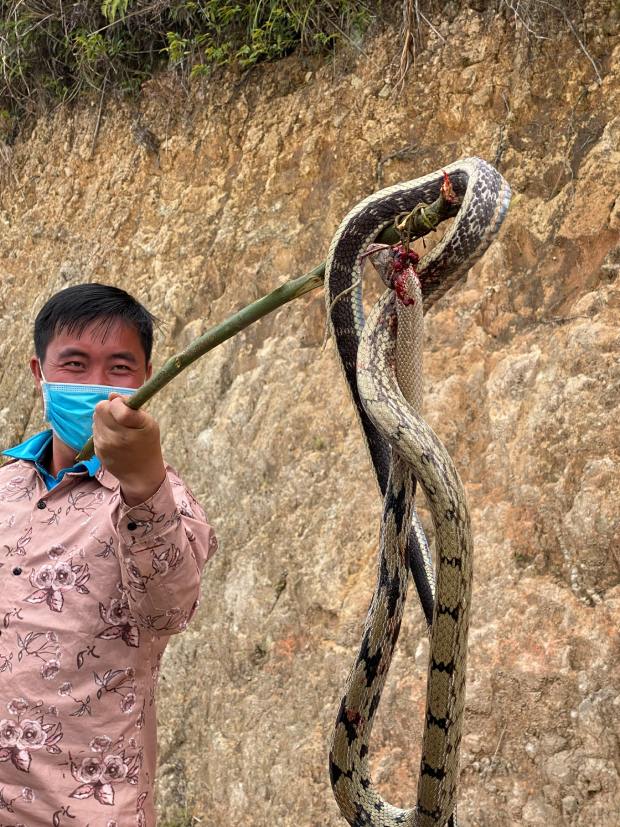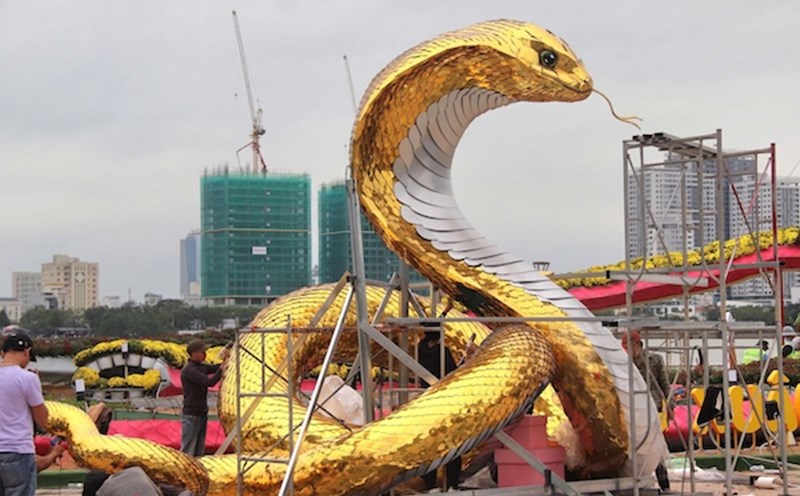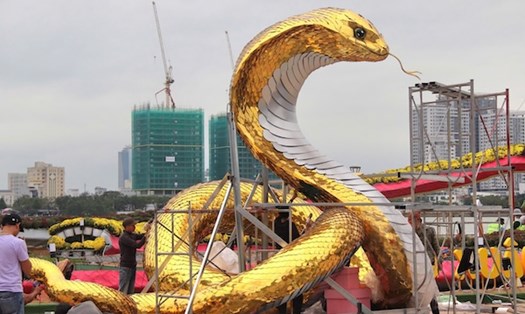Snakes - Silent Guardians of the Ecosystem
Snakes are not only an important link in the food chain, but also help control the population of rodents and insects - creatures that can be harmful to agriculture and human health. Many species of snakes, especially non-venomous snakes such as water snakes, rattlesnakes, or grass snakes, are completely harmless to humans.
But ignorance has caused all snakes to be equated with "venomous snakes". A snake that accidentally appears in the garden or on the road can easily be killed by fear and instinctive reactions.
The fear of snakes of many Vietnamese people can be said to originate from instinct to legend. Since ancient times, the image of snakes has been associated with scary stories in folklore. They are considered dangerous. In addition, some species of venomous snakes are actually capable of causing danger, further reinforcing people's fear of these reptiles. However, the truth is that the number of venomous snakes accounts for a very small percentage of the more than 3,000 species of snakes in the world. In Vietnam, only a few species such as cobras, banded kraits, kraits, vipers... are truly dangerous and they usually do not attack humans unless threatened.
However, the fatal misunderstanding comes from the fact that people often cannot distinguish between venomous and non-venomous snakes. Some snakes even look like venomous ones but are completely harmless, such as the cobra (similar to a cobra but not venomous) or the rat snake.
The indiscriminate killing of snakes not only affects the ecological balance but also causes humans to lose their "friends" who protect crops. As the number of snakes decreases, the number of rats and pests increases, leading to greater consequences for the living environment.
Sharing the story of the "injustice" of snakes, Prof. Dr. Dang Huy Huynh - ASEAN Biodiversity Hero, President of the Vietnam Zoological Association - said that snakes are animals that play an important role in the food chain, helping to balance the ecosystem. In Vietnam, there are about 151 species of snakes.
Due to beliefs, many people are afraid of snakes because they can be bitten, causing injury or death; some people are so prejudiced that they try to kill snakes whenever they see them. This is also one of the reasons why snakes are increasingly declining. "Wildlife in our country is quite rich, few countries have that; snakes also play an important role in our ecosystem, so they need to be respected and protected" - the 93-year-old professor analyzed.
The main reason for the decline of snakes is that snakes often live in mountainous areas or places with dense vegetation, but now forests have been severely destroyed by humans, and trees in these areas have been cleared to build roads and houses.
The natural balance of animals is also being disrupted by humans. Species such as civets, foxes, porcupines, honey badgers, falcons, etc., which are natural enemies of snakes and eat poisonous snakes, are dying under human hunting for food.
In addition, food sources for snakes are increasingly depleted, rats, frogs, toads, insects, etc. have decreased sharply due to loss of habitat, leading to poor life for snakes. Natural food sources are depleted, snakes' need for food increases, which is also the reason snakes seek out residential areas.
Professor Dang Huy Huynh believes that, from the perspective of nature conservation, chasing and killing snakes is not advisable.

"Revenge" for snakes - Minimize "encounters" between humans and snakes
According to experts, raising public awareness is an important measure to protect snakes. First, it is necessary to educate the community about the role of snakes in the ecosystem, as well as how to distinguish between venomous and non-venomous snakes. When people understand their value, they will reduce their blind fear.
People need to behave properly when encountering snakes. If you encounter a snake in the wild, do not kill it immediately. Keep a safe distance, avoid angering it and let the snake move on its own. If you are unsure about the danger, contact the authorities or someone with experience to handle it.
More importantly, protecting the snake's habitat needs attention and focus. Deforestation and environmental pollution are shrinking the snake's habitat, forcing them to move to residential areas. Protecting forests and maintaining ecological balance is the way to minimize "encounters" between humans and snakes.
"In fact, when encountering a snake, just stand still, most snakes will actively crawl away; snakes only get angry when disturbed or collided. Large pythons can consider children as prey; cobras and king cobras often actively attack, and can even spray venom 1-2 meters away, so you have to be very careful with them," said the nature expert.
Snakes, despite their cold and somewhat scary appearance, are actually just doing their duty in their natural cycle. They are not enemies of humans, but on the contrary, they are "silent guardians". Let's stop blaming snakes and learn to live in harmony with them, so that both nature and humans can benefit from the ecological balance that has existed since the beginning of time.
"I hope everyone will not be prejudiced against snakes, not kill snakes, but care about snakes in general. I want more people to research snakes, more people to raise snakes with new successes to exchange experiences, to exploit and conserve snakes more effectively; how to make snake resources in our country not disappear but develop more and more" - Professor Dang Huy Huynh emphasized.
(Posted on the special edition of Lao Dong Xuan At Ty)











